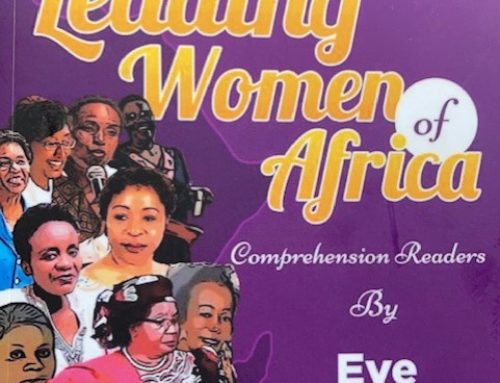Continuing my journey through Frantz Fanon’s ‘The Wretched of the Earth’ and i came upon this passage. Some of this is a little scary. Some of it is helpful and inspirational. But i think it is all so important for us to read and take on and understand, that even if some of the bits on violence do not feel palatable to us, there are completely being welcomed by a number of other people who live in this country with us. We cannot remain ignorant of what is inspiring people around us, and what they might be being inspired towards.
This is from the same chapter as yesterday’s piece, titled ‘Concerning Violence’:
Thus there is very easily brought into being a kind of class of affranchised slaves, or slaves who are individually free. What the intellectual demands is the right to multiply the emancipated, and the opportunity to organize a genuine class of emancipated citizens. On the other hand, the mass of the people have no intention of standing by and watching individuals increase their chances of success. What they demand is not the settler’s position of status, but the settler’s place. The immense majority of natives want the settler’s farm. For them, there is no question of entering into competition with the settler. They want to take his place.
The peasantry is systematically disregarded for the most part by the propaganda put out by the nationalist parties. And it is clear that in the colonial countries the peasants alone are revolutionary, for they have nothing to lose and everything to gain. The starving peasant, outside the class system, is the first among the exploited to discover that only violence pays. For him there is no compromise, no possible coming to terms; colonization and decolonization are simply a question of relative strength. The exploited man sees that his liberation implies the use of all means, and that of force first and foremost. When in 1956, after the capitulation of Monsieur Guy Mollet to the settlers in Algeria, the Front de Libération Nationale, in a famous leaflet, stated that colonialism only loosens its hold when the knife is at its throat, no Algerian really found these terms too violent. The leaflet only expressed what every Algerian felt at heart: colonialism is not a thinking machine, nor a body endowed with reasoning faculties. It is violence in its natural state, and it will only yield when confronted with greater violence.
At the decisive moment, the colonialist bourgeoisie, which up till then has remained inactive, comes into the field. It introduces that new idea which is in proper parlance a creation of the colonial situation: non-violence. In its simplest form this non-violence signifies to the intellectual and economic elite of the colonized country that the bourgeoisie has the same interests as they and that it is therefore urgent and indispensable to come to terms for the public good. Non-violence is an attempt to settle the colonial problem around a green baize table, before any regrettable act has been performed or irreparable gesture made, before any blood has been shed. But if the masses, without, waiting for the chairs to be arranged around the baize table, listen to their own voice and begin committing outrages and setting fire to buildings, the elite and the nationalist bourgeois parties will be seen rushing to the colonialists to exclaim, “This is very serious! We do not know how it will end; we must find a solution–some sort of compromise.”
This idea of compromise is very important in the phenomenon of decolonization, for it is very far from being a simple one. Compromise involves the colonial system and the young nationalist bourgeoisie at one and the same time. The partisans of the colonial system discover that the masses may destroy everything. Blown-up bridges, ravaged farms, repressions, and fighting harshly disrupt the economy. Compromise is equally attractive to the nationalist bourgeoisie, who since they are not clearly aware of the possible consequences of the rising storm, are genuinely afraid of being swept away by this huge hurricane and never stop saying to the settlers: “We are still capable of stopping the slaughter; the masses still have confidence in us; act quickly if you do not want to put everything in jeopardy.” One step more, and the leader of the nationalist party keeps his distance with regard to that violence. He loudly proclaims that he has nothing to do with these Mau-Mau, these terrorists, these throat-slitters. At best, he shuts himself off in a no man’s land between the terrorists and the settlers and willingly offers his services as go-between; that is to say, that as the settlers cannot discuss terms with these Mau-Mau, he himself will be quite willing to begin negotiations. Thus it is that the rear guard of the national struggle, that very party of people who have never ceased to be on the other side in the fight, find themselves somersaulted into the van of negotiations and compromise–precisely because that party has taken very good care never to break contact with colonialism.
This feels like such a powerful statement, worth being aware of:
What they demand is not the settler’s position of status, but the settler’s place. The immense majority of natives want the settler’s farm. For them, there is no question of entering into competition with the settler. They want to take his place.
This alludes to one of the biggest questions/issues in South Africa and other lands. Once you have a group of people who see their current life status as no worse than death, they become virtually unstoppable in their actions, as they have nothing to fear.
the peasants alone are revolutionary, for they have nothing to lose and everything to gain.
How is it that we have lasted so long in South Africa with SO MANY people living in horrendous/disgusting conditions and yet we haven’t seen this point reached? We have so much to be grateful for, but we CANNOT continue to ignore that much longer without seeing some kind of backlash.
Then the idea of non-violence is introduced. But on the back of this statement:
colonialism is not a thinking machine, nor a body endowed with reasoning faculties. It is violence in its natural state, and it will only yield when confronted with greater violence.
One of the things a lot of white South Africans have failed to perceive, at least fully, is how violent a system apartheid [and its remnants] was. That besides all the actual physical violence that took place [which we can possibly sit back and say has been largely halted in post apartheid South Africa], there are many deeper levels of violence which play out which have not been recognised as such. The violence of bantu education and the legacy that left for people of colour in terms of the opportunities it limited them to etc. The violence of the removals [District Six etc] and resettling of people in areas that are not conducive for growth and expansion. The violence that exists in having a mother leave her house in the early hours of the morning and take two to three modes of transport to get to a white person’s house to look after their children, while no-one is around to look after her own. The violence of typically black men at petrol stations spending their lives filling cars that they will never in their life get to own and drive.
Non-violence is an attempt to settle the colonial problem around a green baize table, before any regrettable act has been performed or irreparable gesture made, before any blood has been shed.
So while we might say that the blood shedding has been stopped at least in official capacity, there is still much violence that is happening and because we by and large do not recognise that, we don’t feel particularly moved to do anything about it.
THE IMPORTANCE OF BIGGER MOVEMENT IN 2017
i honestly don’t know where we stand as a country. 2016 has seen a lot of people starting to get it and come to the table and move past the start line and start jogging and some of them start running at a more lively pace. But 2016 has also shown hints of a violent anger that is simmering beneath the surface for so many people. 2016 has shown some great moves of unity and togetherness and diversity and positive community #NotOnOurWatch engagement. It has also had its fair share of Penny Sparrows and Victor Rethabile Mlotshwa being forced into a coffin and Sodwana Bay guesthouse incidents and Ben Sasonofs.
We need to do better in 2017, as a nation, but especially as white people who need to show that we get it that not enough has changed since 1994 for the majority of South Africans, particularly those of darker skin colour than ours.
To that end, i will be working at getting my next book out [in a nutshell Racism for White People for Dummies but with a much snappier title] and hoping to find a publisher who might be interested in helping with that. The main focus is to help white people who are close to the start line or race awareness and engagement to get there and jump over it and start running.
i will be officially launching my series of hopefully weekly videos, titled ‘Race with me’ as i discuss different aspects of race, many of which i have blogged about, again with a white audience in mind as we look to reach more people with ideas such as privilege, #BlackLivesMatter, allyship, restitution and living wages. i have two big You Tube mates who are hopefully going to help me make the production better so that the message can become more effective.
i will be looking to co-ordinate a whole lot more Deep Dive Dinner Conversations with a focus on Race and hopefully helping put together a resource so that more people around the country can start hosting them.
i will be continuing to read people who don’t sound or look like me and with a specific focus on South Africa both then and now, to increase my knowledge and understanding of the story so far and now.
i will be trying to listen more and better and longer, to people on all sides of the conversation, to try and understand where to go from here. Not listening to respond, but listening to learn/hear/understand/empathise.
i will be upping my isiXhosa game. tbV and i are hoping to do the level 2 course at XhosaFundis. i need to get back regularly on Memrise, to up my vocab and i need to find some people i can chat to more regularly so that i really start to grow in it.
i will continue to call people to a #NotOnOurWatch lifestyle, where we refuse to allow racist words, actions and mindsets happen in front of us, especially at the family table, or in the workplace, but also in shopping centres and restaurants. The hope is that as more and more people start getting intentional about this, we will create such a positive peer pressure mass that people with racist tendencies will feel uncomfortable expressing their hate speech out loud.
i will be more intentional about deepening my friendships with people who don’t look like me. 2016 has been a great year in terms of expanding the hue of my and Val’s friendship circles so to speak and we are so stoked with some of the people who we are starting to get to know on a deeper level.
2017 is going to be the year of seeking Interdependence. The true meaning of the statement, ‘Together we can do so much better’. As a family, but also as a nation and a church.
These are just some of the things i will be looking to do in 2017.






[…] [To read a Fanon extract looking at Violence, click here] […]